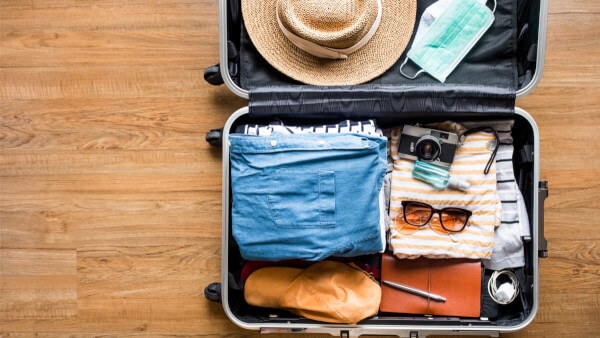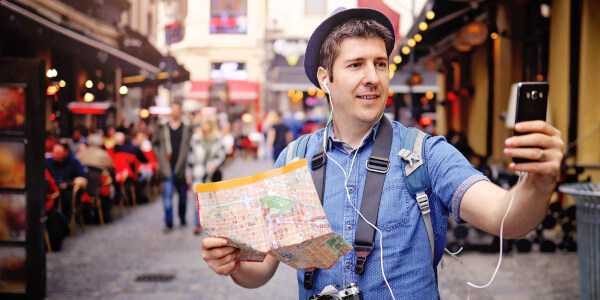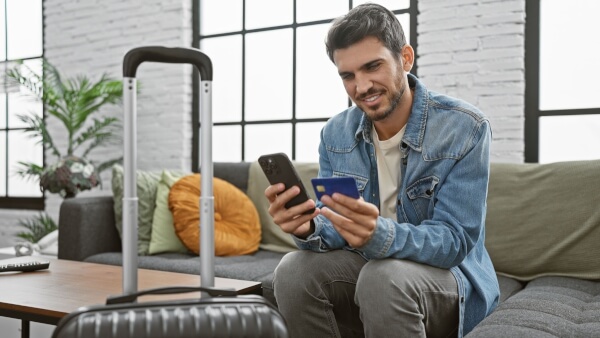UBank vs Wise card - Which is the better travel card to use overseas in Australia?
Looking for a travel card to use overseas? We compared the fees, features, and benefits of two top travel cards: Ubank vs Wise, for Australian travellers.

Sometimes, one currency just isn’t enough. Australian dollars are all very well, but there’s a whole range of reasons why you might be interested in acquiring some money in a foreign currency too.
Most obviously, you might be going abroad. If you spend time in any other country at all, you’re going to need to be able to pay your way whilst there – and your Australian dollars won’t be much use.
There are other reasons you might need foreign cash. For starters, you might need to pay someone abroad: it’s often cheaper to do this if you have their local currency to use. You might also be interested in investing in foreign currency, to try and make a decent return on your Australian dollars.
Regardless of why you want or need it, foreign currency is pretty easy to get hold of on the internet. Not only is it quicker to order it online than it is to go to a specialist store in town, you could also get a better deal on exchange rates by looking online. But how to get the very best rate? This article will offer some tips.
Before you get started, a word.
Banks often charge hefty fees for foreign and multi-currency accounts. And if you’ve already tried managing multiple accounts in multiple countries, you know it’s rarely simple.
Wise could help. With Wise, it’s free to open a borderless multi-currency account with no monthly fees. There, you can manage and send dozens of different currencies all from the same account. All around the world. (Likely, for a lot cheaper than your bank.)
Give it a try. Check out Wise today.
Now, back to what you came here to read.
There are several different ways you can buy foreign currency online, so let’s look at each of them in turn.
This is for you if you’re after a wallet full of travel money to spend during a trip abroad. Via a specialist travel money provider, post office, or even your bank, you can simply order online. The cash will then be sent either to you at home, or to a local branch where you can collect it.
This is a great option if you’re going somewhere that’s big on cash payments, especially if there aren’t going to be a lot of ATMs. But otherwise, there might be more efficient options.
Many of the same providers that offer foreign cash, also offer travel cards. These tend to be prepaid cards, much like debit cards, that can hold money in multiple currencies, so that you have the local currency on your card in your destination.
This has a lot of advantages over traveling around with a wad of cash. Be careful you read the terms and conditions, though, because there tend to be plenty of costs involved. If you don’t get a good deal on the exchange rate, a travel card might not be much of a saving after all.
This one only works if you’re actually traveling abroad – but if you are, do consider not bothering with currency exchange at all. Sometimes simply using your Australian debit card in a foreign ATM is the cheapest way to get foreign cash. It’s certainly the easiest.
Again, though, check the details first. Find out what your bank charges for foreign transactions and withdrawals. If it’s a lot, then this may not be the genius scheme it first seemed.
Kind of one step up from a multi-currency card, if you have a whole multi-currency account then you can hold money in multiple international currencies simultaneously. That gives you a platform from which you can buy and sell across borders with ease.
Many banks offer these sorts of account, although sometimes they’re aimed at businesses rather than individuals. A few specialist services offer them too, including for personal use.
If you’re serious about playing the markets by investing in foreign currency, it’s recommendable to use a broker to handle your money.
There are plenty of online options these days: investing in forex (foreign exchange) has never been easier. It’s still a risk, though: make sure you know what you’re doing.
Where’s the best place to get your foreign money? Well, it depends which of the above options you’re going for. Here’s each one in turn.
If you do want to order cash, the internet is your friend. Many providers offer better rates to online customers. That means you shouldn’t wait until you’re at the airport to buy foreign currency. Seriously, not a good move.
A few decent options for ordering cash online are:
There are loads of these on offer, but beware: they all have different sorts of fees, and might vary in their exchange rates too. They can be great value, but only if you use them right.
This will depend which country you’re going to – and possibly also who you bank with. Try and find out if your bank has any partnership deals with other banks around the world, as you might get reduced fees at their ATMs.
Wherever you go, avoid privately owned ATMs: for the safest bet, stick with bank-branded ones, as they’re less likely to charge extra.
As mentioned before, there are loads of these on offer from the banks, but the emphasis of a lot of them is on business clients. Check out this guide to the best foreign currency accounts in Australia.
In sum, here are a few of your best foreign currency account options:
| Multi-currency account | Who’s it for | Available currencies |
|---|---|---|
| Wise | Business and private customers | More than 40 |
| ANZ | Corporate clients | 9 |
| NAB | Business and private customers | 19 |
| St George | Business customers | 10 |
| Westpac | Business and private customers | 15 |
| Bankwest | Business customers | 11 |
| CBA | Business and private customers | 14 |
| Citibank | Private customers | 10 |
| HSBC | Private customers | 10 |
It’s best not to go it alone if you’re serious about playing the markets. Here are a few of the best forex brokers you can use online in Australia – not a definitive list by any means.¹
There’s a world of difference between trading foreign currency to try and make a profit, and buying it so you can pay your way as you backpack through Europe. But there’s one thing that’s true in absolutely all cases: you must watch out for the exchange rate.
Foreign exchange rates are constantly fluctuating, as markets go up and down. Everyone knows that. But what still not enough people realize is just how much exchange rates vary between different providers. A bank may tell you your Australian dollars are worth a certain number of euros – but a specialist provider might tell you something completely different.
All of these different providers look at the same basic rate – the mid-market rate, or interbank rate – but most of them then mark it up. Effectively, they can set their own rate, deciding how much they want to charge above the mid-market rate. That means bad value for you, the consumer: and, even worse, it means it can be tricky to work out what you’re really being charged. Exchange rate markup can end up as a kind of hidden fee.
How do you find out what you’re really paying? Actually, it’s not so hard. You just have to check an online currency converter like Google, XE or Wise. That’ll tell you what the real mid-market rate is. Then you can go back to whatever you’re being offered, with a better sense of how much it’s really costing you.
Whatever you need your foreign currency for, the internet should be a great first port of call. How to get the best rate? Don’t be afraid to shop around – and always go back to the mid-market rate to check.
Sources:
Sources accurate as of 27 June 2019
*Please see terms of use and product availability for your region or visit Wise fees and pricing for the most up to date pricing and fee information.
This publication is provided for general information purposes and does not constitute legal, tax or other professional advice from Wise Payments Limited or its subsidiaries and its affiliates, and it is not intended as a substitute for obtaining advice from a financial advisor or any other professional.
We make no representations, warranties or guarantees, whether expressed or implied, that the content in the publication is accurate, complete or up to date.

Looking for a travel card to use overseas? We compared the fees, features, and benefits of two top travel cards: Ubank vs Wise, for Australian travellers.

Planning to use your UBank card to make ATM withdrawals internationally? Read on to understand the true cost of overseas transactions with UBank.

Wondering if Travel Money Oz is the right solution for you? Our guide outlines everything you need to know about their currency exchange and travel money cards.

If you're trying to decide between Travelex and Travel Money Oz for your international money needs, read on for our side-by-side comparison of the features.

Side-by-side Comparison of Westpac Travel Card vs Wise Travel to help Australian users decided which is a better travel card for spending abroad.

Looking for a card for international transactions while traveling overseas? Read on for our guide to the options available with Macquarie Bank.